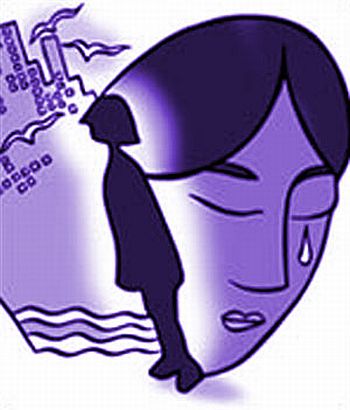 The unscientific 'finger-test', which is still used in India as part of forensic examination of rape victims, should be done away with, along with several other wrong forensic practices, and doctors, policemen and judicial authorities should be sensitized to treat victims the right way, a Human Rights Watch report released on Monday said.
The unscientific 'finger-test', which is still used in India as part of forensic examination of rape victims, should be done away with, along with several other wrong forensic practices, and doctors, policemen and judicial authorities should be sensitized to treat victims the right way, a Human Rights Watch report released on Monday said.
"That such an unscientific method still exists shows total neglect for forensic collection. There is an urgent need for a complete overhaul of the system. And successive Indian governments have failed to understand and implement victims' rights," said Aruna Kashyap, the report's author.
She said doctors have a twin role when it comes to treating a victim -- therapeutic care and assisting in the criminal investigation.
"There is a need for equipping doctors, policemen, and judges with the right kind of training to handle the situation," she said.
Most healthcare centres approach a victim from a purely medico-legal point of view and the therapy part is missed out, she said.
"It might be a victim being called a rape case in the corridor of a hospital or even a cop accompanying a victim," she said.
Most importantly, the study called attention to the regressive finger test.
Doctors determine whether a victim is 'habituated to sex' depending on the 'laxity and roominess' of the vagina when one or two fingers are inserted.
After the doctor puts down his opinion on whether the victim is sexually active, the defence lawyer uses it to discredit the victim in the court.
Though this test was dropped on paper thanks to a 2003 amendment, it is still in practice, and courts routinely go by it, the report said. In fact, it finds place in some medical jurisprudence textbooks, the report added.
In general, according the report, what happens after a rape is as follows: The victim is examined by a male doctor and put through the finger test, despite guidelines saying a woman doctor should examine the victim. The victim is usually accompanied by a policeman, who makes it a point to ensure that the doctor puts down his opinion about whether the victim is sexually active.
After this when the case comes up in the court, "any rape trial is an exercise of voyeuristic sinistry," according to Flavia Agnes, women's rights lawyer, who has been crusading on behalf of rape victims for over three decades.
"It is as if the medical status becomes a moral statement about the victim," she said, adding, "After all these years, I am convinced things will not change. The judges have preconceived notions and so do the doctors and policemen. Everyone forgets that the responsibility of the trial judge, doctor and the police is to protect the dignity of the victim."
On the part of doctors, forensic expert Dr N Jagadeesh said there are still a lot of lacunae that need to be addressed.
"Many hospitals insist on a police requisition before a victim is examined," he said. "By this time, evidence gets lost."
He said, another reason for evidence getting lost is difficulty in finding a lady doctor.
"But the most important problem we face in India is that unfortunately the doctors who examine the victim and accused come face-to-face only at the witness box. In the Western world, most of the time, the same doctor examines the victim and the accused, and this helps in piecing together a lot of evidence," he said.
He said the fact that such problems exist does not mean nothing has changed over the decades.
"A 2000 high court judgment said there was no need for a police requisition to examine a victim," he said, adding, "A 2005 Criminal Procedural Code amendment said the victim could choose the doctor who would conduct the examination. But these information have not properly reached out."
Even high court judges are not properly educated or sensitized, retired Delhi High Court chief justice A P Shah said.
"The Supreme Court has described conclusions based on the finger test as 'hypothetical and opinionated', and has ruled that they cannot be used against a rape survivor. Similarly, the defence cannot bring in the moral character of a victim during cross-examination. Despite such measures, there have been recent judgments where the court said the victim's testimonial could not be taken at face value because she was habituated to sex," he said, quoting a recent Chhattisgarh high court judgment.
The most important thing that a judge should keep in mind in a rape trial is the fact that the victim has undergone tremendous trauma and is reliving the horror in the court when she is recounting the incident, he said.
"Rape is not comparable to any other act of crime. Not only is the victim physically abused, but also sexually and psychologically. It is a kind of sexual terrorism. It is invasive, dehumanizing, and akin to torture. So, when a victim is recounting the horror in the court, the last thing that she wants is to be humiliated again," he said.
The report, based on 44 interviews in Mumbai and Delhi with activists, rape survivors, parents, prosecutors, other lawyers, judges, doctors, and forensic experts, includes a review of forensic examination templates used in even such big cities, and an analysis of 153 high court judgments that referred to the finger test findings from 18 states.
Illustration: Dominic Xavier







